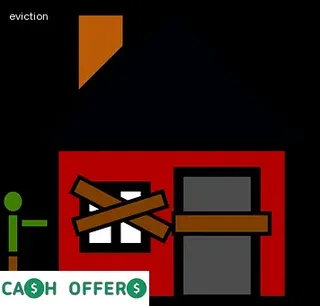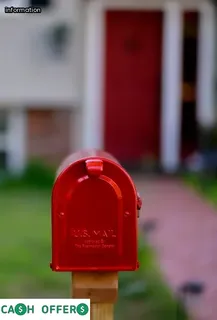Vermont landlords should be aware of the laws surrounding tenant abandonment of property, as failure to comply with them could result in landlord liability and other financial issues. First and foremost, a landlord must make an effort to notify their tenant that they are in breach of their contract by failing to pay rent or abide by other terms.
If the tenant does not respond to this notification within five days, or if the tenant has vacated the premises without notice, then the landlord may assume that the tenant has abandoned their property. The landlord is then obligated to store any personal possessions left behind for at least thirty days before disposing of them properly.
Additionally, landlords must follow specific steps when disposing of abandoned property, such as providing written notice of intent to dispose along with details about how and where it can be claimed. If these steps are not followed, landlords may be held liable for any damages incurred from improper disposal.
As such, it is important for Vermont landlords to understand state laws regarding tenant abandonment and take necessary precautions when dealing with such cases.

As a Vermont landlord, it is important to be aware of the potential for tenant abandonment of property, and what your responsibilities are in such cases. It is critical to understand that if you have reason to believe that a tenant has abandoned their rental unit, you must take immediate action to secure the property.
This includes changing locks and securing windows and doors, as well as ensuring that no one is living in the unit without your consent. Additionally, you should reach out to the tenant, either through a certified letter or through other contact methods such as email or phone calls.
Once you have determined that a tenant has abandoned their property, you should follow local regulations which may include notifying the local housing authority or filing a lien on any personal items left behind. Finally, it is important to remember that any abandoned items left behind by tenants may be disposed of after following certain legal guidelines.
Taking these steps will help ensure both your safety and security when dealing with an abandoned rental property in Vermont.
When it comes to tenant abandonment of property in Vermont, landlords are left with the responsibility of deciding what is to be done with any personal items that are left behind. As a landlord, you must consider the legal implications of disposing of a tenant’s abandoned belongings, as well as the best plan for dealing with an abandoned rental unit.
Depending on state laws, you may need to store or dispose of the items in a certain way or provide notice to the tenant before doing anything with their possessions. Additionally, there could be financial and liability consequences if the landlord does not act appropriately when handling abandoned property.
To minimize potential risks and comply with state law, landlords should know what their rights and responsibilities are when it comes to abandoned property left by tenants.

When a tenant abandons property in their rental unit, Vermont landlords may often be left wondering how to go about disposing of it. The most important thing for landlords to remember is that they must take the necessary steps to notify the former tenant before getting rid of any abandoned items.
This includes sending a written notification by certified mail or hand delivering it to the tenant’s last known address. If there is no response after 14 days, the landlord may then dispose of the property as they see fit.
It is best practice to photograph any items and keep records of their disposal in case further action needs to be taken down the line. When dealing with tenant abandonment, following these procedures can help ensure that landlords are in compliance with state laws and avoid potential legal issues.
When a tenant abandons their property in Vermont, the landlord is left with the task of selling the items. The profits from these sales can be used to cover any outstanding rent and other expenses related to the tenancy.
It is important for landlords to know who will receive the profits from these sales. In most cases, those proceeds will go directly to the landlord as they are considered recoverable damages.
If a tenant has already paid a security deposit, however, those funds can be used to offset any money owed to the landlord. Additionally, when there are multiple tenants on a lease agreement, each tenant may be liable for a portion of the profits generated by any sales of abandoned items.
Landlords should also be aware that if they choose to hold an auction or sell goods online, they may be required to pay taxes on any profits generated from those activities. Ultimately, landlords must ensure that they are following all applicable state laws when it comes to selling abandoned property and distributing profits.

Vermont landlords should be aware of the resources available to both themselves and their tenants in the event of tenant abandonment of property.
Vermont's state government provides a variety of publications and helpful information on topics such as the laws governing landlord-tenant relationships, the rights and obligations of each party, and procedures for handling rent payments.
Additionally, landlords can find information about how to deal with tenant abandonment including guidelines on how to handle any remaining personal property, what steps must be taken to notify tenants that they have abandoned their property or lease agreement, and when it is appropriate to take possession of abandoned items.
Ultimately, understanding these resources available can help landlords protect their rights and ensure a smooth process should any tenant abandon their rental property.
In Vermont, as in most states, landlords are expected to abide by certain laws when it comes to tenant rent payments. There are a few things that landlords need to know when dealing with late rent payments in the state.
First of all, rental agreements should include a clause that outlines what happens if a tenant fails to pay rent on time. This should include any additional fees or charges that may be assessed and other possible remedies available to the landlord.
Additionally, it's important for landlords to understand their rights in terms of evicting tenants for non-payment of rent or other violations of the rental agreement. Landlords should also seek legal advice if they have any doubts about their rights under the law.
It's also important for landlords to understand their obligations when it comes to providing notice before evicting a tenant and properly disposing of any abandoned property left behind by the tenant. Finally, landlords should make sure they keep accurate records of all communications with tenants and any attempts they've made at resolving issues concerning late rent payments.
Taking these steps can help ensure that both parties adhere to their respective rights and obligations as outlined by Vermont law.

In Vermont, a landlord has certain obligations and rights when it comes to lease agreements. Breaking a lease agreement can have serious consequences for both the tenant and the landlord.
If a tenant unexpectedly vacates the property prior to the end of their lease agreement, this is referred to as tenant abandonment. A landlord should take legal action in order to protect their interests if a tenant abandons their rental unit without terminating the lease agreement or paying any outstanding rent owed.
The consequences for breaking a lease agreement may include court-ordered eviction proceedings, unpaid back rent, fees associated with re-letting, costs arising from damage to the property and other costs associated with the process of finding new renters. If a tenant fails to appear in court during an eviction hearing, they could be held liable for all damages that occurred while they occupied the unit and any unpaid rent or fees related to their tenancy.
It is important for landlords in Vermont to understand what their legal rights and responsibilities are when dealing with tenants who have abandoned property before taking any action against them.
In Vermont, landlords cannot take any illegal action against tenants in retaliation for tenant abandonment of property. Retaliation could include withholding the tenant's security deposit, raising the rent, changing the terms of the tenancy or evicting a tenant without cause.
This kind of behavior by landlords is a violation of both federal and state laws and can leave them open to legal penalties. Landlords should be aware that if they are found to have taken any illegal action against a tenant due to abandonment, they may be subject to fines, damages and even criminal prosecution.
It is important for landlords in Vermont to understand their rights and responsibilities when it comes to dealing with a tenant who has abandoned their rental property.

Understanding eviction processes in Vermont is an important part of being a landlord. Tenant abandonment of property can be a difficult situation to manage.
Landlords must be aware of the laws and regulations that govern this process in order to protect their interests and ensure they are in compliance with all state regulations. In Vermont, landlords must provide written notice to tenants that they have abandoned the property before initiating any legal action.
The landlord should outline the steps that need to be taken by the tenant regarding the return of any personal property left behind. If the tenant does not respond within a reasonable period of time, then landlords may take possession of abandoned property and recover costs associated with storage or disposal from the tenant if necessary.
It is important for landlords to document all communications with tenants during the eviction process, as well as keep detailed records about any abandoned property. Knowing what Vermont law requires can help landlords navigate tenant abandonment situations swiftly and efficiently while protecting their rights throughout the process.
If a tenant is evicted from their rental unit, it is important for the landlord to remember that they should not enter the property or remove any of the tenant's possessions without first obtaining a court order. The landlord must also send written notice to the tenant informing them that they have been evicted and must vacate the premises immediately.
If the tenant has left personal items in the property, the landlord should make sure that these items are securely stored in a safe place. The landlord should also make an inventory of all those items and document it in writing.
If the tenant does not return to collect their property within a specified period, then they may be deemed to have abandoned it, and at this point, the landlord can dispose of it as they see fit.

In Vermont, the process of dealing with unclaimed items left by tenants after eviction can be a time-consuming and difficult task for landlords. It is important to be aware of the state’s regulations regarding abandoned property so that landlords are in compliance with the law.
The first step for landlords is to provide proper notice to the tenant regarding their rights to reclaim any property left behind. Next, it is important to document all items that are present in the rental unit when it is vacated.
Landlords should also take an inventory of these items which should include photographs and/or videos if possible. The landlord should then securely store any unclaimed items in a safe area and wait until the 30-day period has passed before disposing of them either through donation or disposal.
During this waiting period, landlords must make reasonable attempts at notifying former tenants that they have left belongings behind and give them an opportunity to reclaim them. Landlords who fail to comply with these regulations can face fines or other legal consequences.
In Vermont, there are certain guidelines that a landlord must follow if a tenant abandons property after eviction. Firstly, the landlord must provide the tenant with written notice of their intentions to store any abandoned property.
This must be done within seven days of the tenant abandoning the premises. The landlord is then entitled to store the abandoned property for up to 60 days.
While storing the property, it is also necessary for them to make an effort to contact the tenant within 15 days and inform them that they have stored their belongings. They may also be required to post a notice in a public place if such an effort has been unsuccessful.
After 60 days have passed, landlords are responsible for disposing of any remaining items or returning them to their original owners if possible. It is important for landlords in Vermont to understand these timeframes when dealing with tenant abandonment of property in order to comply with all relevant laws and regulations.

Landlords and tenants in Vermont may face disputes over tenant abandonment of property. It is important for both parties to understand the legal implications associated with such a dispute.
In Vermont, upon tenant abandonment of property, landlords must wait fifteen days before disposing of any items left behind. Additionally, if the tenant does not return within the fifteen-day period, the landlord must send written notice to the tenant’s last known address and provide ten days for a response.
If no response is received from the tenant after ten days, then the landlord has legal authority to dispose of any abandoned items as they see fit. Furthermore, landlords are responsible for storing any personal belongings that are left behind until they are reclaimed by their rightful owner or disposed of according to state law.
It is also important that landlords document all attempts made to contact the former tenant prior to disposing of any abandoned property in case there are any disputes later on.
When it comes to tenant abandonment of property, Vermont landlords must be aware of the potential for unlawful retaliation by tenants. As a landlord, you should know that federal and state laws protect tenants from retaliation if they assert their rights under the law.
This includes filing a complaint against the landlord with a government agency or exercising any other right protected by law. It is illegal for a landlord to retaliate in any way against a tenant who has made an assertion of their legal rights, such as increasing rent or terminating the lease agreement.
Landlords should also be aware that tenants can sue for damages if they have been subjected to unlawful retaliation. Furthermore, tenants may be eligible for additional remedies if they can prove that the landlord’s behavior was intentional or part of a pattern of retaliatory conduct.
To avoid the risk of liability, landlords should always take steps to ensure that any actions taken are not perceived as retaliatory in nature and comply with all applicable laws when dealing with tenant abandonment issues.

Vermont landlords have specific rights when facing tenants that are late on rent payments or have broken their lease agreement. It is important for landlords to understand these rights so they can take the necessary steps to protect themselves and their properties.
Knowing the laws in Vermont relating to tenant abandonment of property is also essential, as this can complicate matters even further. In most cases, a landlord can enter the rental unit if the tenant has abandoned their possessions, but it should be done carefully with all necessary precautions taken to avoid violating any tenant privacy rights.
Landlords should also be aware of any special laws governing property abandonment in their area and seek legal advice if needed. Lastly, it is critical for landlords to thoroughly document any instance of late rent payments or broken leases, as this will help them prove their case in court if necessary.
If you are a tenant in Vermont, it is important to know your rights when it comes to being evicted from your unit. Many landlords may try to wrongfully evict tenants by claiming they have abandoned their property, when in fact they are still living there.
This can be a frightening situation and knowing what legal recourse is available can help protect your rights as a tenant. In these cases, you should seek professional legal help right away.
An experienced lawyer can advise you on what course of action you should take and make sure that none of your rights are violated throughout the process. Additionally, consulting with an attorney can give you peace of mind, knowing that someone is looking out for your best interests during the eviction process.

As a landlord in Vermont, it is important to be aware of your rights when it comes to tenant abandonment of property. If a tenant leaves behind personal possessions after vacating the premises, you have the right to take possession of the items and store them until you can make contact with the former tenant.
You also have the right to dispose any items that are considered hazardous or a nuisance under local laws. However, before disposing of any item, you must provide written notice to the former tenant explaining what items were removed and where they can reclaim their belongings.
Furthermore, landlords should consult their local ordinances to determine if there are any special protocols or regulations that need to be followed when dealing with abandoned property in Vermont. Ultimately, understanding your legal rights and obligations as a landlord will help ensure you handle abandoned property matters in accordance with applicable laws and regulations.
When a tenant abandons their property in Vermont, landlords must take appropriate steps to ensure any remaining items are properly handled. All unclaimed items should be secured and stored in a safe place for the required 30 day period.
Landlords need to be aware of the requirements of Vermont's landlord-tenant law which states that owners can dispose of abandoned property after two notices have been provided to the tenant. It is necessary to keep track of all expenses associated with disposing of the property and landlords should retain any records related to this process.
Additionally, if there are any valuables left behind, such as jewelry or artwork, landlords need to contact the local police department who will provide instructions on how to proceed. Finally, when dealing with unclaimed items after an abandoned unit has been cleared out, it is important for landlords to understand their obligations under state law and follow these guidelines accordingly in order to protect themselves from potential legal issues down the road.
A 14 day notice in Vermont is a formal document landlords must serve to their tenants when they are abandoning their rental property without providing sufficient notice. It serves as an official notification to the tenant that they have left the premises and abandoned the property, and it must be served within 14 days of the tenant leaving.
The landlord must include specific legal language in the document, such as how long the tenant has been absent, why he or she was sent the notice, and a description of what rights the landlord has if no contact is made. If a tenant fails to contact his or her landlord after receiving the 14-day notice, then he or she forfeits any claim to the property and waives any rights regarding abandonment of said property.
This means that a landlord can then re-rent or dispose of any personal items left behind by a tenant who has abandoned their rental property without providing proper notice.

In Vermont, landlords must understand the laws and procedures governing tenant abandonment of property. Eviction proceedings can begin as soon as a landlord believes a tenant has abandoned the rental property.
Landlords must first provide written notice to the tenant giving them 15 days to respond before filing an eviction lawsuit in district court. If no response is received from the tenant after 15 days, the landlord can then file a complaint in court for eviction.
The process generally takes anywhere from two to four weeks, but may be longer depending on how quickly the case moves through the court system. Once a final judgment is obtained, the landlord can proceed with an order of occupancy and have law enforcement remove any remaining tenants or occupants from the property.
This process typically takes less than 24 hours.
In Vermont, habitability laws are in place to ensure that tenants are able to live in a safe and livable environment. The state requires landlords to maintain the rental property in a habitable condition, which includes providing adequate heat, running water, electricity, and other essential services.
Landlords must also comply with all building codes and safety regulations applicable to their properties. Furthermore, landlords must ensure that all repairs needed to keep the rental unit livable are made in a timely manner.
When it comes to tenant abandonment of property, landlords must understand their rights and obligations under the law. If a tenant abandons the property or moves out without giving proper notice, the landlord is still responsible for ensuring that the living space is maintained in accordance with habitability laws.
In some cases, a landlord may be able to terminate the lease agreement due to nonpayment or abandonment of property; however, they should consult an attorney before taking any action.
If a landlord in Vermont needs to evict a roommate, they must follow the rules set by the state. In order to do so, landlords must first understand the laws regarding tenant abandonment of property.
According to Vermont law, a tenant is considered abandoned when rent is more than 15 days late and no contact has been made with the landlord for at least 10 consecutive days. If this occurs, landlords will need to send written notice demanding payment or possession of the property.
If rent remains unpaid after 30 days from the date of notice, landlords may then file an eviction action in court. The court will then hear both sides of the case and make a ruling on whether or not to evict the tenant.
It's important for landlords to understand that they cannot legally remove any belongings left behind by an evicted tenant unless they receive permission from the court.
A: A landlord in Vermont should begin the eviction process by providing the tenant with a Notice to Vacate. The Notice should include the date that the tenant must vacate, and instructions for the return of any security deposit or other rental income due.
A: In Vermont, landlords must serve the tenant with a notice to quit and must be delivered by First Class Mail. The notice must be mailed to the tenant's last known address or, if unavailable, to the property itself. If the tenant does not respond within seven days of the mailing date, then the landlord may consider the tenancy abandoned.

A: According to Vermont landlord-tenant law, when a tenant abandons a rental property, landlords must make reasonable efforts to find the tenant and notify them that they must either pay the rent or move out. If the tenant does not respond within 14 days of notification, then the landlord may dispose of any abandoned items in accordance with state regulations, and return the security deposit (minus any unpaid rent) to the tenant.
A: According to Vermont state law, a landlord must serve the tenant with a summons for possession and may take legal action to possess the property if the tenant does not respond.
A: When a tenant abandons their rented property in Vermont, landlords should follow the proper state eviction processes. It is important to know that renters rights still apply and that landlords must provide notice to tenants before beginning the eviction process.

A: A landlord may sue the tenant in civil court. The Vermont Judiciary provides specific rules and procedures to follow when filing such a case.
A: Under Vermont law, landlords must follow specific procedures for dealing with tenant abandonment of property. The landlord must first make reasonable attempts to contact the tenant and inform them that they have abandoned the property. If the tenant does not respond within 7 days, the landlord may enter the premises and take possession of any personal property remaining on site. The landlord must then store this abandoned personal property in a safe location for 30 days before disposing of it. In addition, the security deposit must be refunded as required by law if no damages are incurred from the tenant's abandonment.
A: According to Vermont Landlord-Tenant Law, if a tenant abandons their rented property in Vermont, the landlord must make reasonable efforts to collect rent due and return the security deposit. Any rent collected after the tenant has abandoned shall be applied first to unpaid rent and then to damages before returning any remaining balance of the security deposit back to the tenant.